Sales Enablement vs CRM: What’s the Difference?
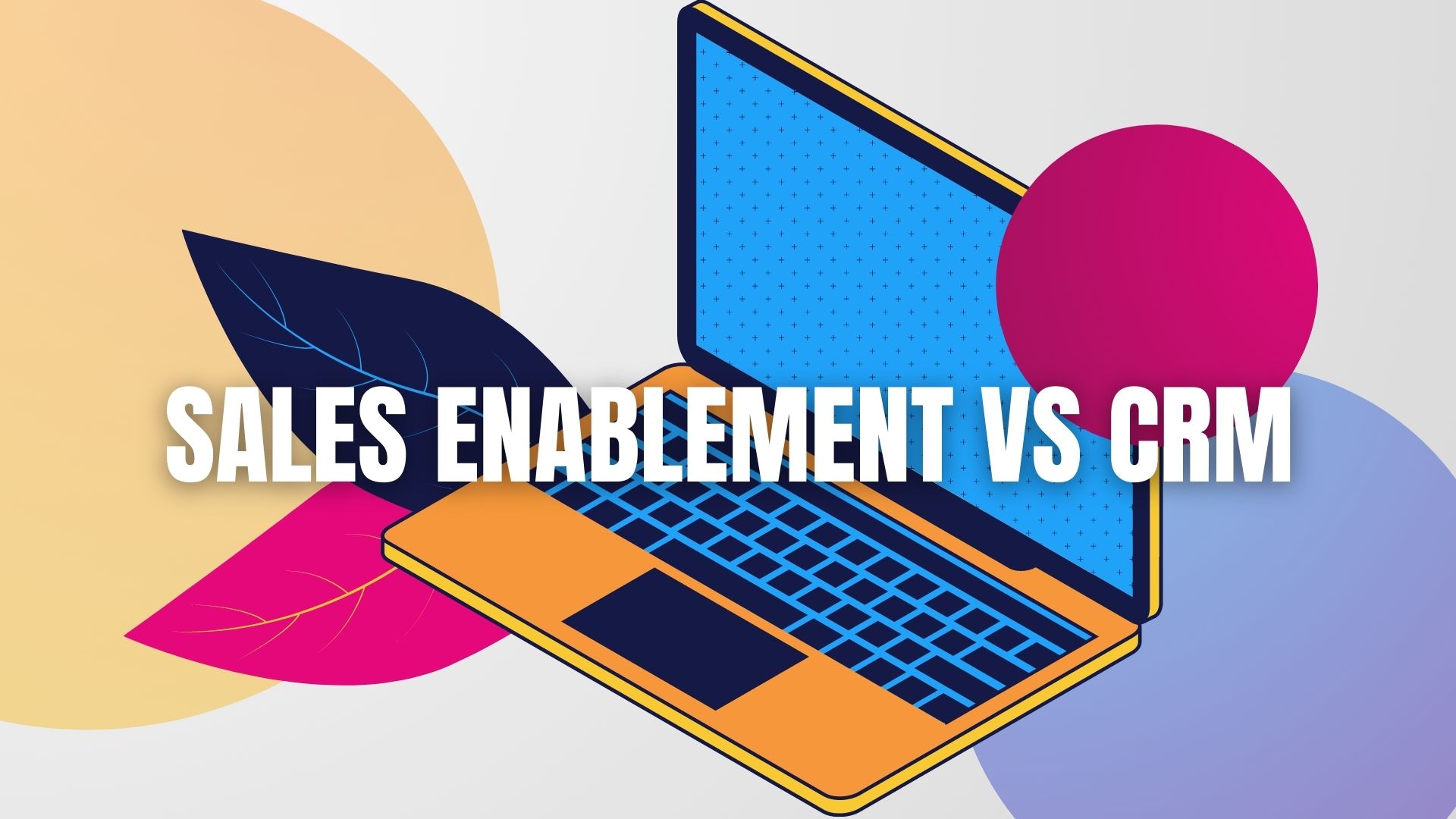
In today's competitive business environment, customer relationship management (CRM) and sales enablement software are two vital tools that enable organizations to manage, track, and enhance customer interactions and drive revenue growth.
While both systems are essential components of an organization's sales and marketing team operations, they have significant differences in their functionality and purpose.
In this article, we will explore the similarities and differences between CRM and sales enablement software and examine how they work together through digital sales rooms to help organizations achieve their business goals.
What is Sales Enablement Software?
Sales enablement software is a relatively new tool in the world of business and sales in particular.
Sales Enablement Defined
According to an article about sales enablement software, sales enablement is defined as the process, platform, or tool companies use to enhance their sales processes, increase the effectiveness of sales teams, and close more deals, faster.
These tools can come in many shapes or forms, but while each may look different, most sales enablement software helps sales teams manage the onboarding of new team members, automate menial sales tasks, provide sales reps with interactive tools to boost customer engagement during the sales cycle, and track customer data.
One of the reasons why sales enablement software is such a critical sales tool for B2B companies is that it can help solve a wide range of problems with little additional effort. Basically, if your company struggles with any of the items below, sales enablement software is the tool you need:
- onboarding processes
- keeping track of tasks
- directing content and messaging
- managing brand
- motivating teams
- engaging customers
- tracking data
Also, as sourced from a LinkedIn study, 97% of sellers rank sales enablement as a “very important” sales tool.
Sales Enablement KPIs
The key performance indicators (KPIs) of sales enablement software are what make it a truly enabling sales tool.
Increased Conversion Rates
The goal of all sales reps is to close deals. Ultimately when they increase conversion rates and bring their company new clients, the company will grow and thrive. If they can’t do that, the company will suffer.
Enablement platforms do just that: enable sales reps to increase conversion rates.
By providing sales teams with the right tools, content, analytics, and other resources to help them sell more effectively, sales enablement helps ensure that sales teams are able to efficiently move prospects through the sales funnel.
Enhanced Customer Satisfaction
Sales enablement software also offers unique ways for salespeople to interact with prospects in interactive ways that boost engagement levels. These interactive experiences can also be tailored to match customers’ unique wants and needs, personalizing the sales process and building a relationship between customer and company.
With this boost in engagement and relationship building, customers will have greater loyalty and higher satisfaction rates. This in turn will improve customer lifetime value (LTV) which will increase company revenue as well.
Improved Internal Collaboration
The final key performance indicator of sales enablement software is that it can drastically help improve internal collaboration. By acting as a sales enablement tool for teams, sales managers, marketers, and sales reps can better work together to serve prospects effectively.
Both with the analytics features of sales enablement software and the content management systems, sales enablement makes collaboration natural and productive.
Best Sales Enablement Software Companies
While you can check out the full list that we have compiled in this article, below are some of the top 5 best sales enablement software companies.
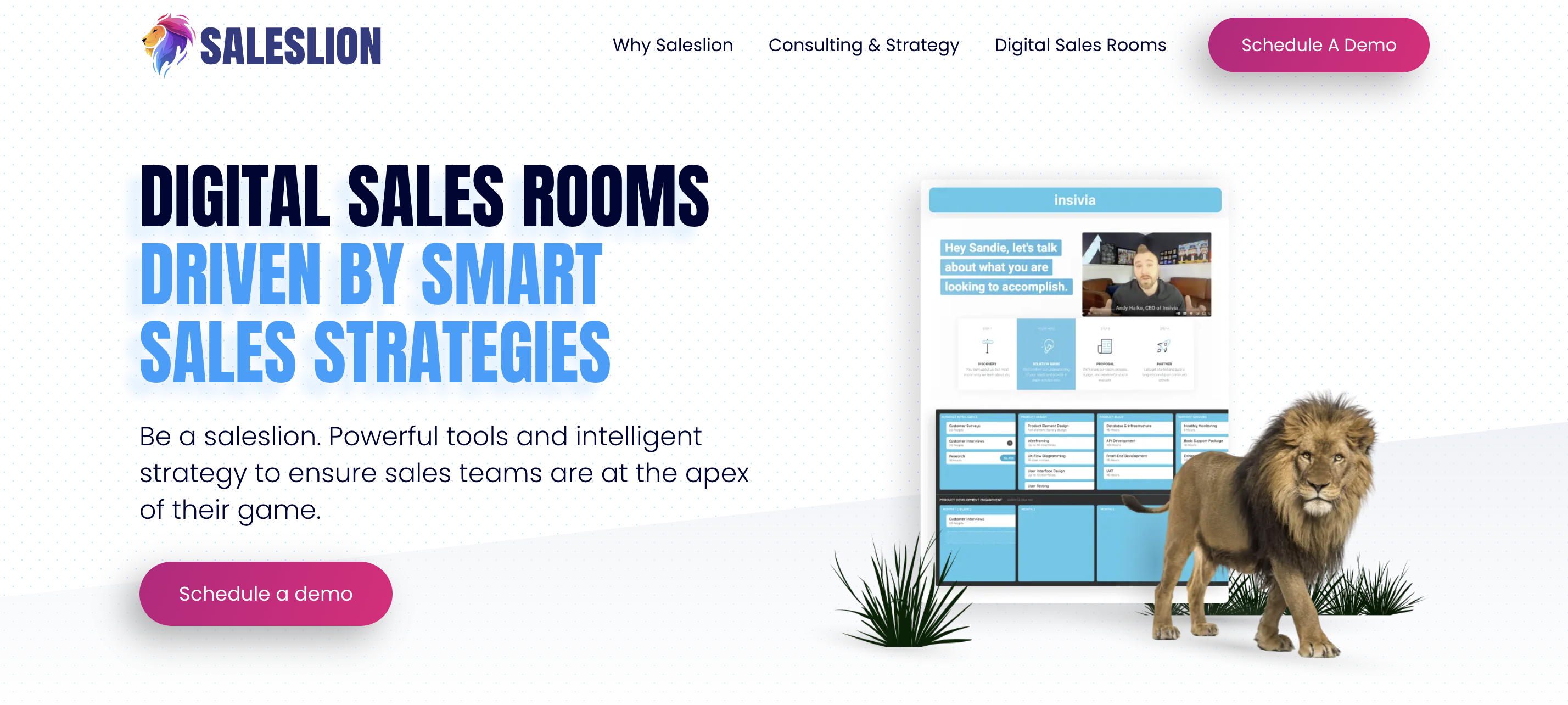
Saleslion is transforming how enterprise companies conduct business with its digital sales room which not only boosts customer conversion rates but also helps to improve the company’s sales journey as a whole. With Saleslion, businesses can create more efficient discovery phases, personalize the experience, and streamline the closing process.
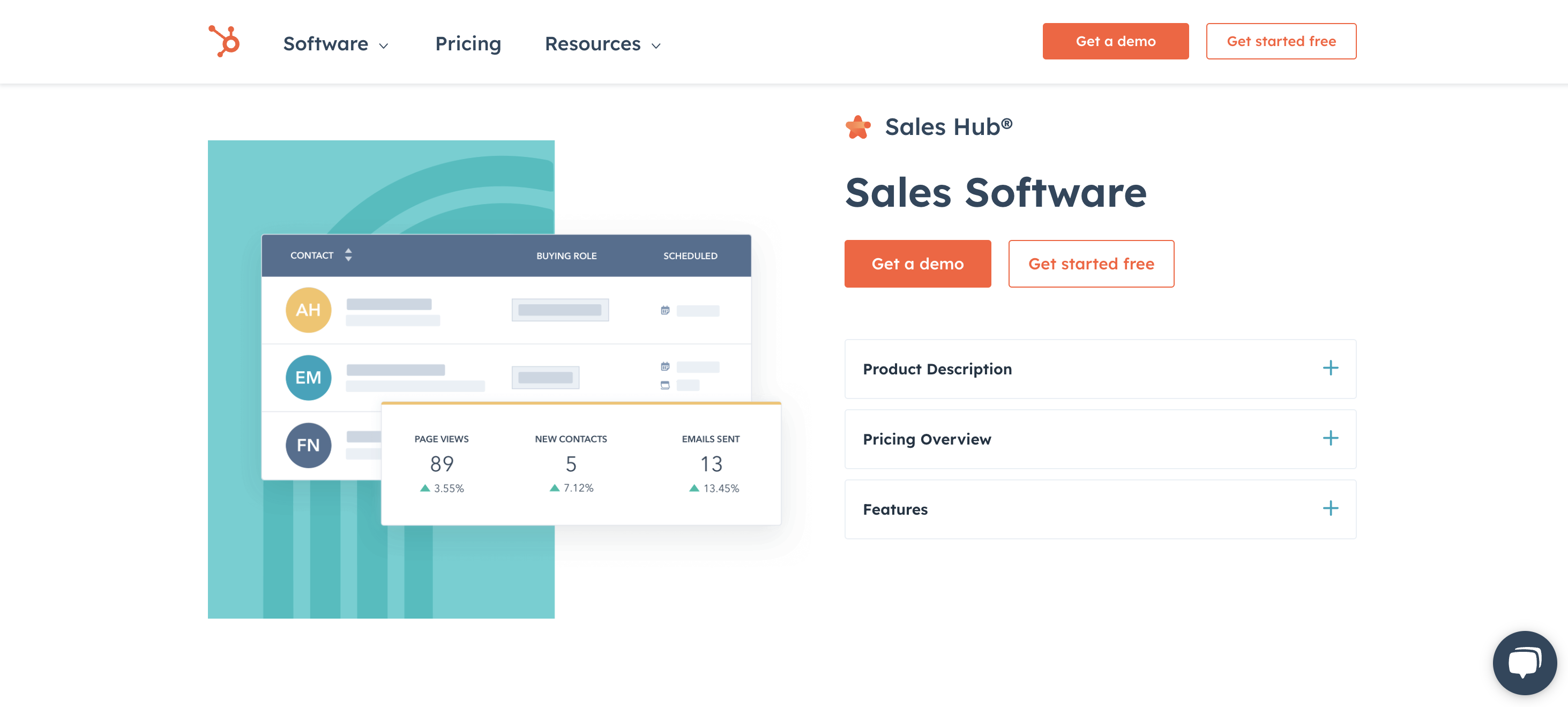
Hubspot Sales Hub, connected with Hubspot’s CRM technology, is enablement software that boasts several features for efficient customer management and communication. The software's vast resources and capabilities make it an ideal tool for businesses of all sizes looking to improve their sales effectiveness.
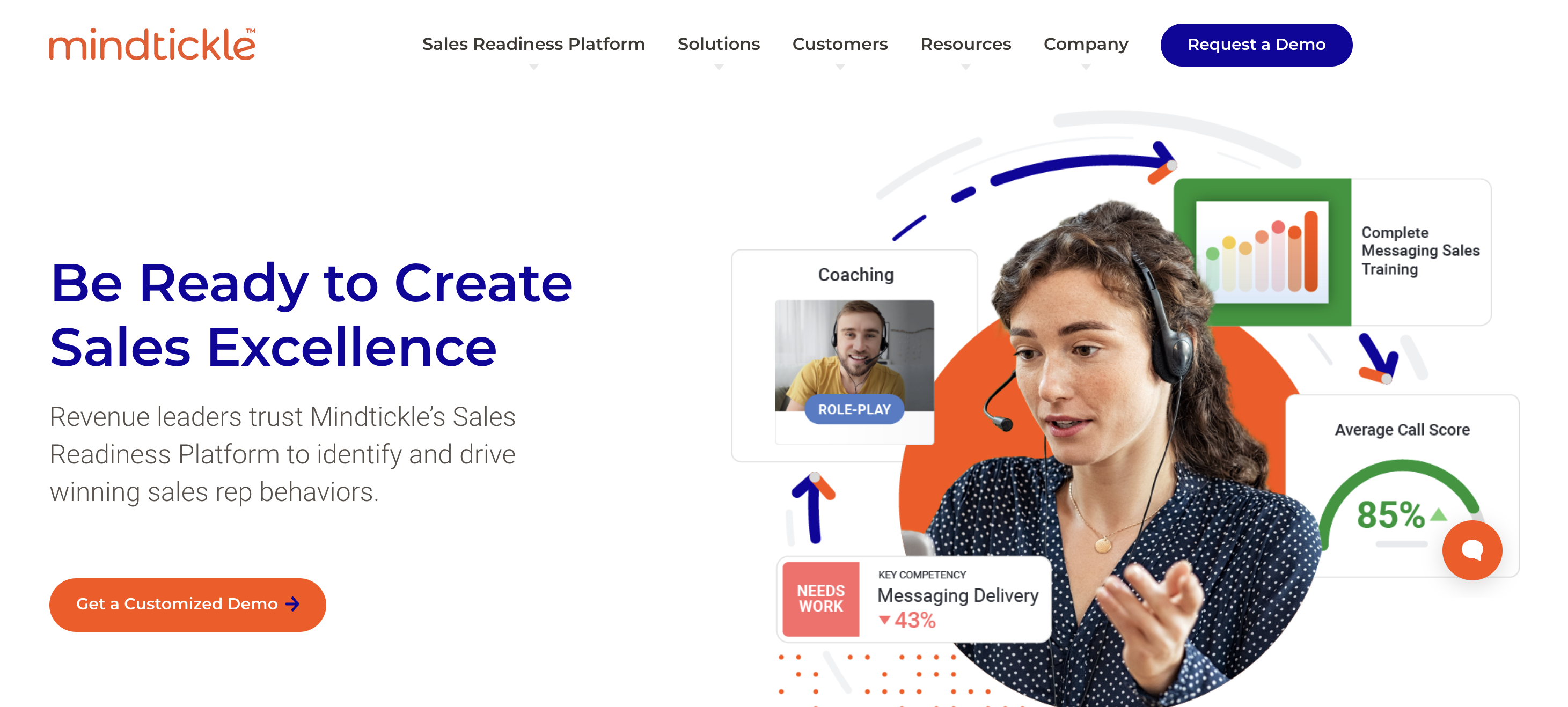
Mindtickle is a sales readiness platform that aims to empower sales teams with the skills and resources to engage in sales processes more productively. The platform focuses on streamlining the onboarding process and facilitating sales training to help teams drive more revenue.
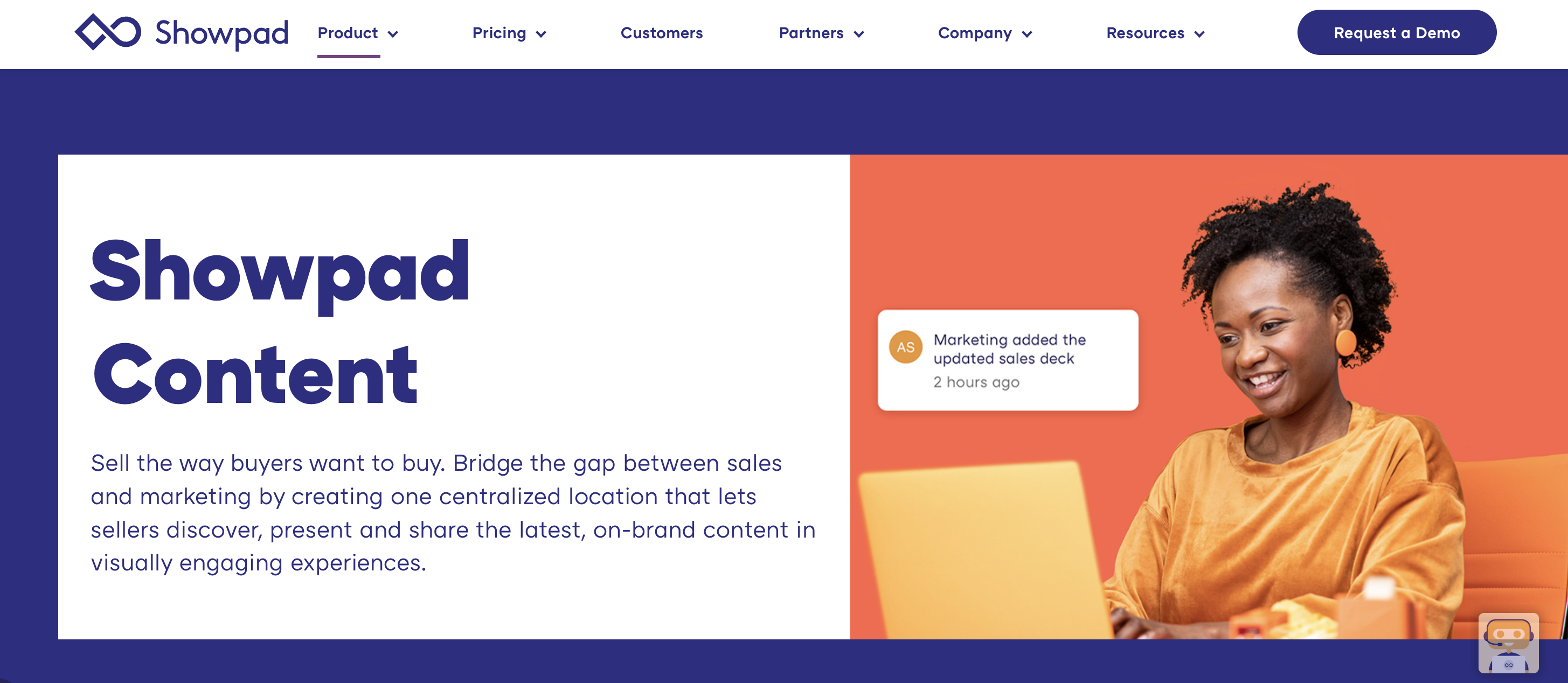
Showpad Content is an advanced content management system specifically designed to streamline and optimize the marketing and sales processes by providing carefully crafted content for potential customers. Using this sales enablement tool, Showpad helps businesses accelerate their growth.
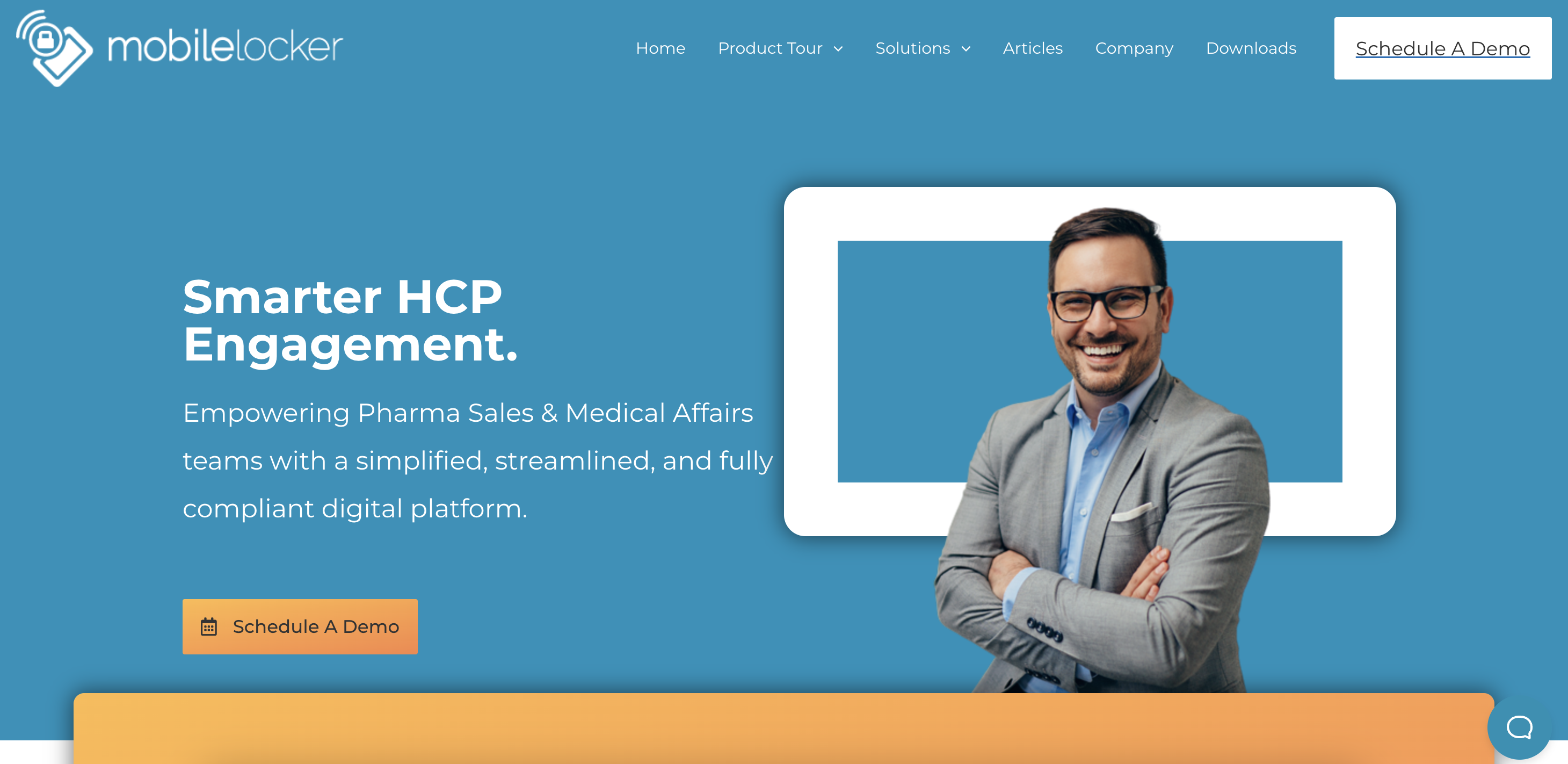
Mobile Locker is a sales enablement tool designed to boost sales through targeted marketing content for customers. Catering to the pharmaceutical sales and medical affairs sector, Mobile Locker helps teams to effectively manage all customer interactions, enabling them to deliver a more personalized customer experience.
What is CRM Technology?
Having blown up in popularity and effectiveness in recent years, CRM technology exists to track sales pipelines and improve business relationships so that companies can grow their business more effectively.
CRM Defined
The definition of CRM is simple. As defined by Salesforce, the pioneer of modern-day customer relationship management technology, CRM is a technology for managing all your company’s relationships and interactions with customers and potential customers.
This can include helping companies keep track of new leads, automating tasks such as email responses, and tracking top-of-the-funnel customer-related data.
One of the reasons why CRM technology has become so accepted and desired by companies is because of how helpful it can be to improve internal operations and collaboration between marketing, sales, and customer service departments.
Without customers, your company would not exist.
So, if you want to still be around in 10 years, then you need to invest in a strategy that is centered around your customers. And that is where CRM technology comes in.
One of the reasons why these technologies are so beneficial for businesses is that they help ensure timely and quality communication between customers and the company to improve relationships and generate loyal and long-lasting customers.
CRM KPIs
Three key performance indicators of CRM are customer satisfaction, renewal rate, and monthly recurring revenue (MRR). If you are interested in a more comprehensive and detailed list, check out this article that covers 38 CRM KPIs.
Customer Satisfaction
Because customer relationship management helps sales teams monitor communications and relationships with customers, trust between the company and the customer will also improve. And with trust and loyalty, customer satisfaction rates will also increase, boosting conversion rates and generating revenue.
Renewal Rate
Another way that CRM helps generate more revenue is by increasing renewal rates. With a technology that can easily keep track of customer behavior, CRM can help companies understand how successful they are at retaining customers so that they can tailor their strategy accordingly.
Monthly Recurring Revenue
Similar to how CRM can help monitor renewal rates, it can also help track monthly recurring revenue (MRR). With this information, companies can become more financially strategic and can better plan for future growth.
By tracking these three KPIs, businesses can gain valuable insights into their customer relationships and make informed decisions about their strategies for success.
Best CRM Companies
Because CRM has become a critical technology for companies who are interested in prioritizing customer relationships, there is a multitude of companies that jumped on that wagon and now offer a customer relationship management product. Below are just a few of the many effective CRM platforms in the market today.
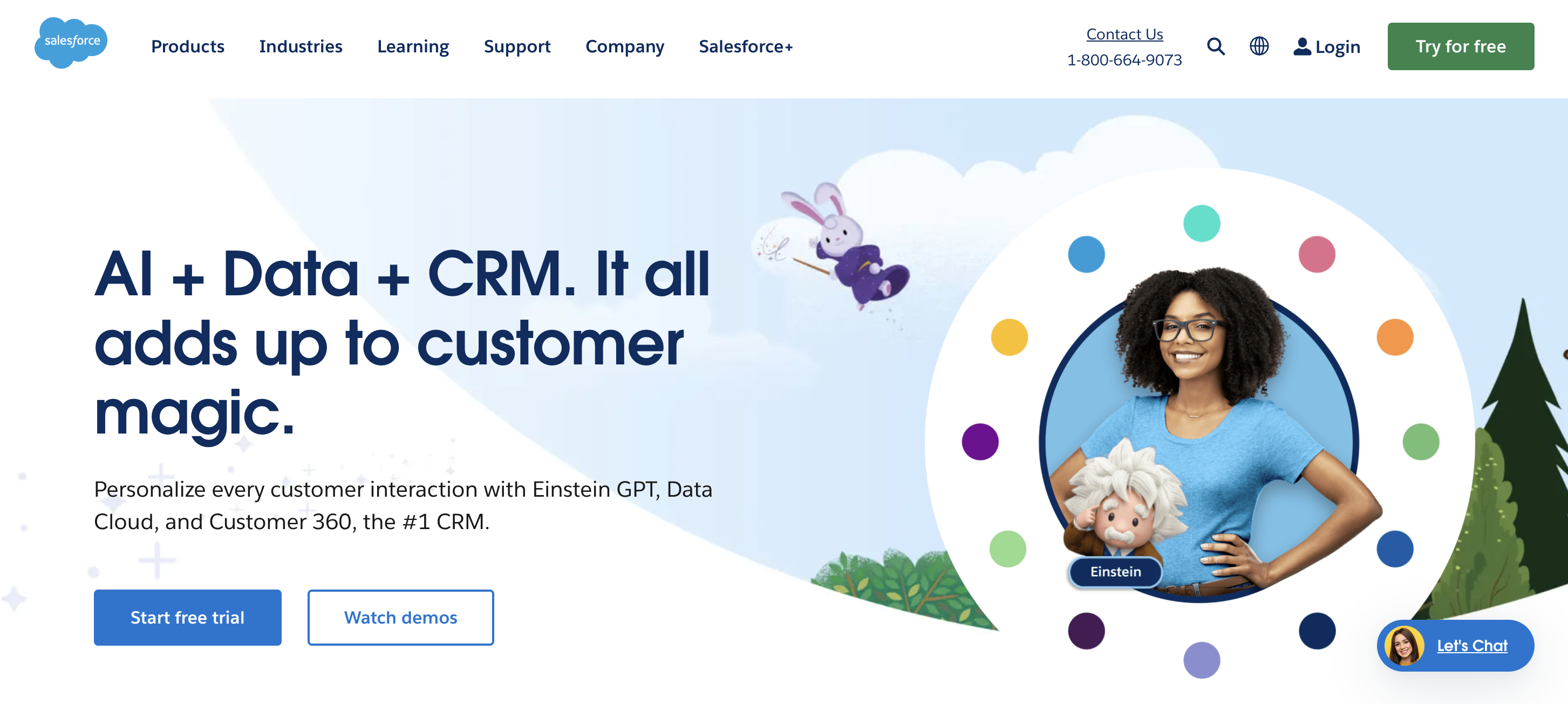
Salesforce was the first company to recognize the significance of CRM technology and has made it an indispensable tool for sales managers and customer success representatives. Salesforce's signature feature, Customer 360, enables companies to personalize each customer journey, enhancing their experience and resulting in improved sales performance.
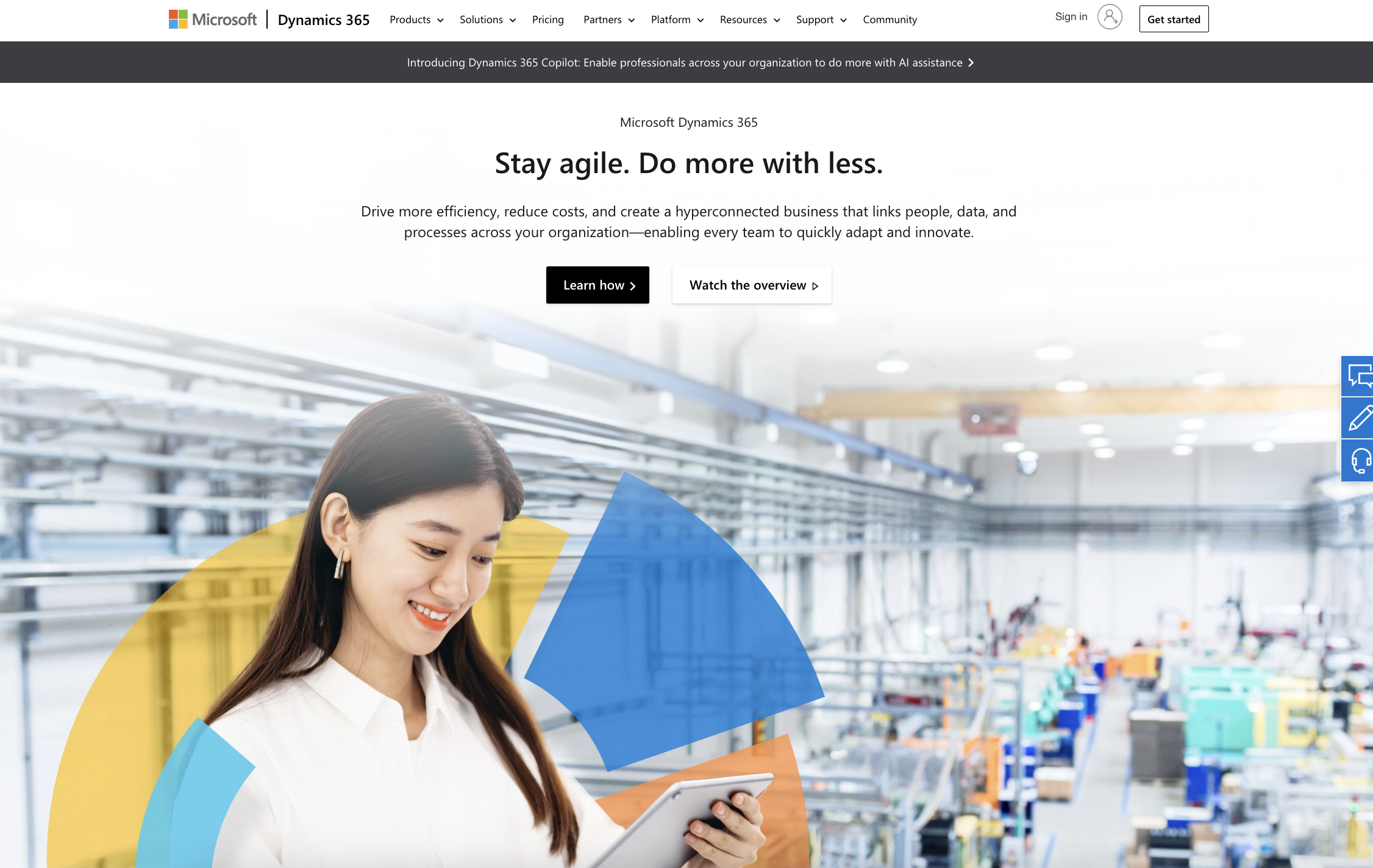
Microsoft Dynamics 365 is a comprehensive CRM system that enables businesses to track customer interactions, automate sales processes, and analyze customer data. The system has a wide range of features that provides real-time insights into sales funnel performance. It is a powerful and scalable CRM solution that can help businesses of all sizes better manage their customer relationships.
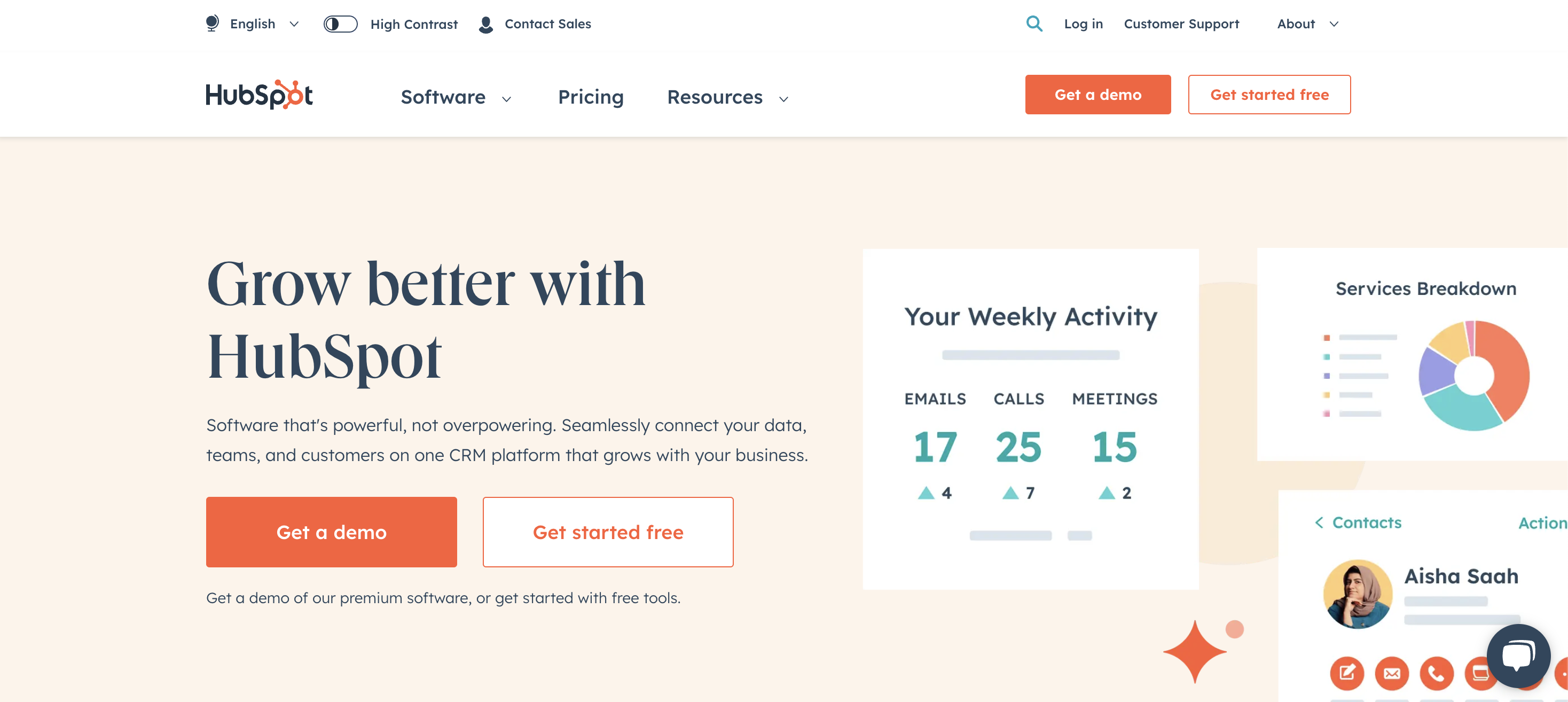
Hubspot is yet another advanced CRM technology equipped with various functionalities that are crucial for effective customer management and communication. Hubspot is also backed by an extensive collection of resources making it a helpful tool for companies of all sizes looking to improve their effectiveness.
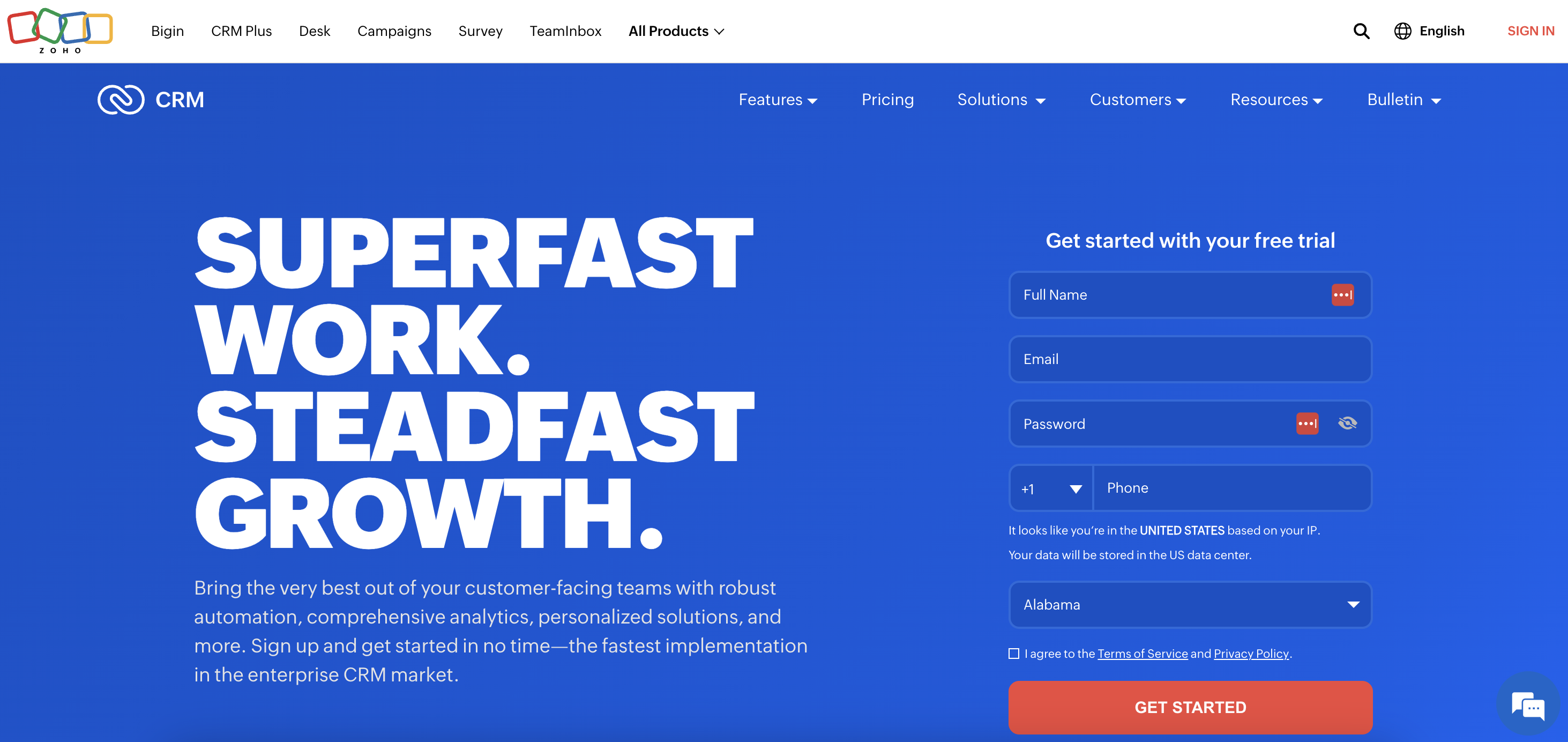
Zoho CRM is a cloud-based customer relationship management platform designed to help businesses manage their customers' lifecycles. It helps companies automate their sales, marketing, and customer service functions and also integrates with other applications, making it easy for companies to manage their day-to-day operations.
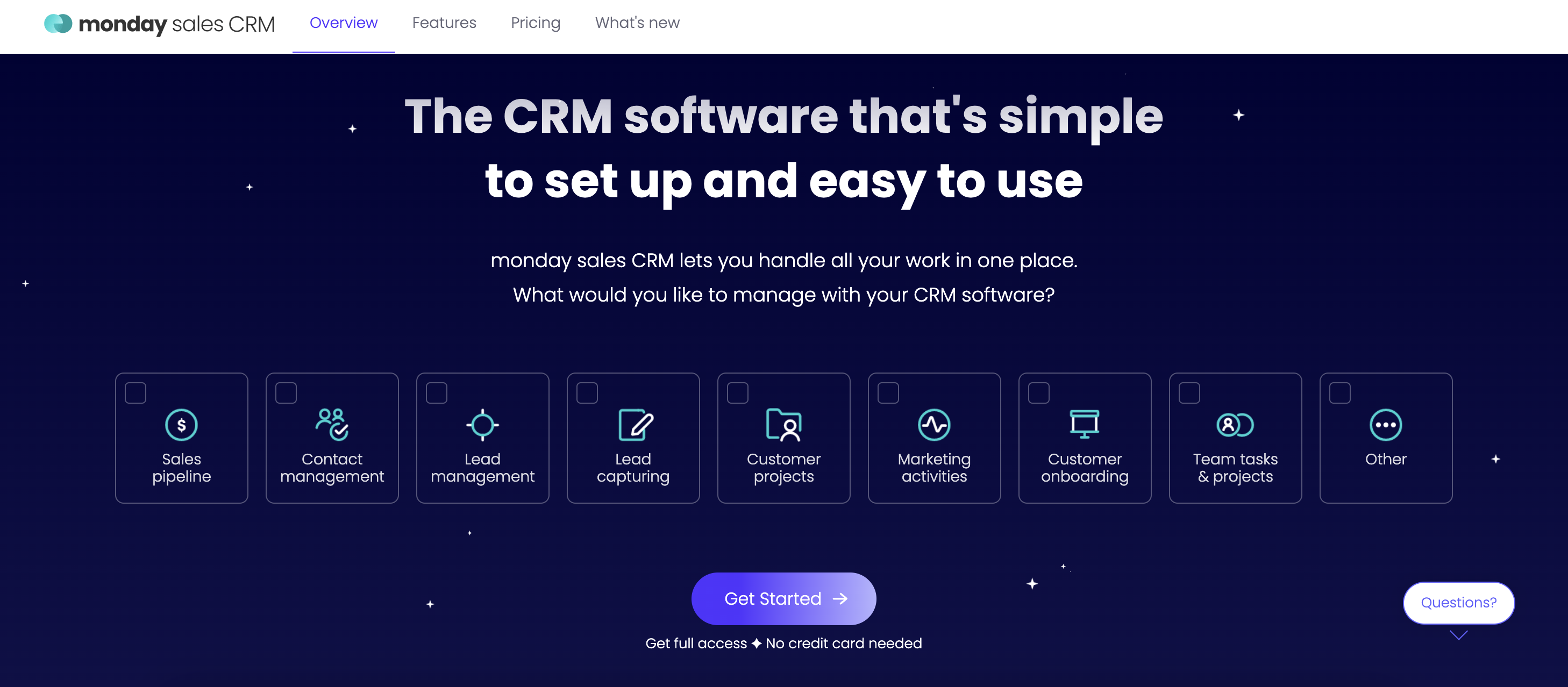
Monday.com is a system that includes CRM functionality to help businesses manage their customer relationships effectively. It enables businesses to streamline their sales processes and automate tasks, including lead management, pipeline tracking, and customer communication.
How Do They Work Together?
So now that we have defined the differences between sales enablement software and customer relationship management technology, let’s look at their key similarities.
Firstly, while both platforms focus on helping companies with customer relationships, CRM tools are used more to help manage the sales pipeline and keep a history of communications while sales enablement is more focused on improving the sales process and being more effective.
Another similarity between enablement software and CRM is that they both help improve the quality and speed of the sales process. Through timely responses and interactive boards, both platforms enhance the entire sales cycle to be more valuable to both the customer and the company.
The final key comparison between CRM and sales enablement is that they both provide companies with crucial insights into customer behavior through data and analytics platforms. This allows companies to make timely and data-informed decisions to close more deals, faster.
So now that we know the similarities and differences between these two technologies, how do they work together?
Well, imagine you combined the best qualities of sales enablement software with the best qualities of CRM technology.
What would you get in return?
A digital sales room.
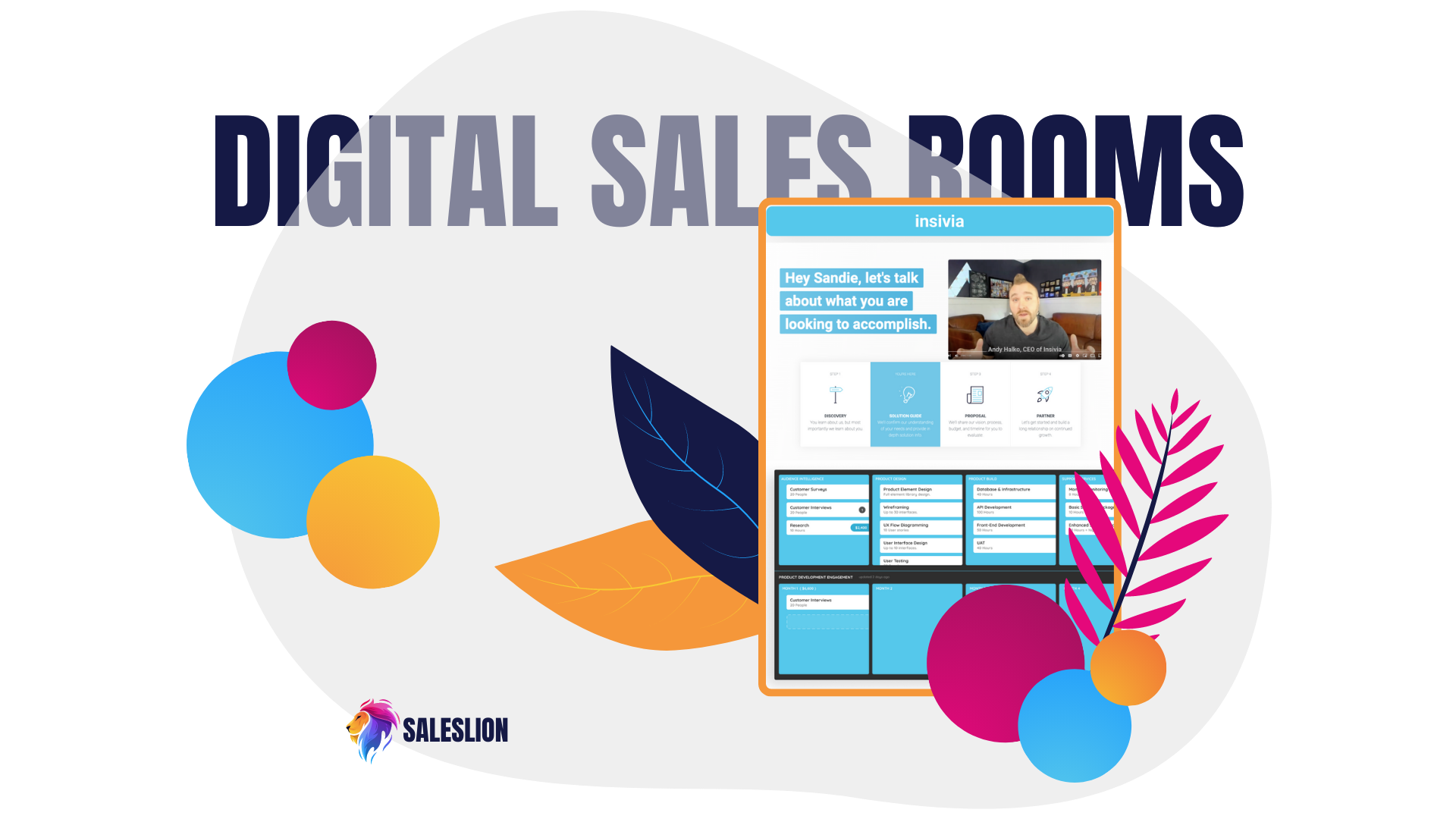
Digital sales rooms are asynchronous online spaces that allow companies to share information and resources with buyers, enabling a streamlined buying experience.
Digital sales rooms improve customer experience by personalizing communications and interactions. These sales rooms also allow sales teams to respond quickly and concisely to customers, improving the relationship.
Also, with sales enablement features like interactive boards, document-sharing hubs, and collaboration spaces, digital sales rooms can effectively maximize the sales process to reach its full potential.
Overall, digital sales rooms improve conversions, increase deal sizes, and boost close rates by personalizing the customer experience, improving communication, and enhancing teamwork.
Key Takeaways
In summary, CRM technology and sales enablement software, while both invaluable tools for sales teams that are interested in improving their sales processes and scaling their company are two very distinct technologies.
And while their functions overlap slightly with customer satisfaction and retention, CRM technology is primarily focused on managing customer relationships while sales enablement software is focused on enhancing the sales process.
Digital sales rooms effectively combine the effectiveness of both tools into a revolutionary online space that maintains customer relations, improves internal processes, enhances the sales process, and increases conversion rates.
Reach out to us today to learn more about how our digital sales rooms can give you the best of both worlds between CRM and sales enablement!
Ready to reinvent your sales process and tools?
One quick call and we'll share our approach - no pressure.
Schedule your demo